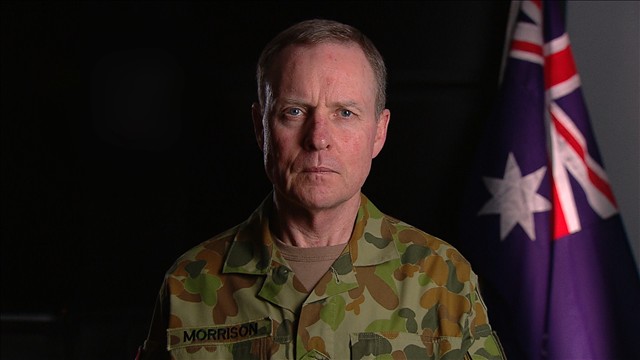The Way We Wish All Leaders Would Speak (Video)
In an age of media spin and carefully calibrated organizational messages, it’s increasingly rare to hear a leader issuing an unambiguous response to an institutional crisis.
So when Australia Army chief David Morrison “issued a stern warning to personnel after it was revealed that dozens of members were involved in the distribution of hundreds of explicit emails denigrating women,” his direct and unsparing response quickly went viral worldwide.
This is a must-see video that embodies all of the best practices of a crisis response. Well done, Lieutenant General Morrison, well done.
Here are six reasons this video worked:
1. His Message Couldn’t Have Been Clearer: The Irish playwright George Bernard Shaw once said that “The single biggest problem in communication is the illusion that it has taken place.” Mr. Morrison avoided that problem by using unambiguous language that ensured his message would be broadly—and immediately—understood. I’ve rarely heard a top leader say something as strong as this:
“They [women] are vital to us, maintaining our capability now and into the future. If that does not suit you, then get out.”
2. His Delivery Was Congruent: Morrison’s nonverbal delivery, vocal tone, and verbal message were fully congruent. His words were angry, he looked angry, and he sounded angry. And although anger can be dangerous during media interviews, it was a controlled and directed anger that aligned his message with public disgust.
3. He Issued a Call to Action: Morrison made the point that every member of the army had responsibility to root out bad behavior, and told them what to do (although he might have been more specific by detailing to whom people should report such activity):
“If you become aware of any individual degrading another, then show moral courage and take a stand against it.”
4. He Asked For Support: This was yet another call to action, but unlike the first one, this one asked his command to support his strong efforts to end harassment against women:
“I will be ruthless in rooting the army of people who cannot live up to its values and I need every one of you to support me in achieving this.”
5. He Used a Media-Friendly Sound Bite: Many of Morrison’s best sound bites are already captured in my commentary above, but there was one additional line that caught my attention, one intended to end any lingering apathy: “The standard you walk past is the standard you accept.”
6. He Ended With Anaphora: Morrison ended with four “if” statements, using a rhetorical device known as anaphora. As a result, each of the four statements gained more emphasis than they would have on their own, giving his remarks the powerful close they deserved.
Were you as impressed with Lieutenant General Morrison as I was? Please leave your thoughts in the comments section below.
h/t @DBMC




I have nothing to add other than I agree it was absolutely brilliant. I posted it to my Facebook page with the simple comment, “Bravo.”
Wow.
I had heard about this, but hadn’t seen the actual statement until now. Now that’s a clear message! How refreshing. Thanks for posting it, Brad.
Clear concise, appropriate tone in the circumstances and wonderfuly direct. Excellent work… oh and loved the regular soldier uniform
i salute this brave man!!!! may there be many more like him, who will stand up for what is right regardless of what others may think or say.
Thanks for sharing – a great, effective video. I’d serve with this guy anytime.
Oh, that his American counterparts could learn a few lessons in what to say and how to say it so well!
What a great example of being direct in the time of crisis!!! Well done!
Loved this, but something gnawed at me as not quite right. On repeat viewing, it’s two things. It feels a bit too scripted – “band of brothers and sisters” and he doesn’t blink. Once. My eyes were watering in sympathy! It was just a bit Christopher Walken….just saying
As an Aussie myself (though only for a couple of decades), his directness strikes me as classically Australian. All the same, he does do it especially well.
By the way, he talks of “ridding the army” not “rooting the army” – the latter implies something very different, though quite in keeping with the topic!